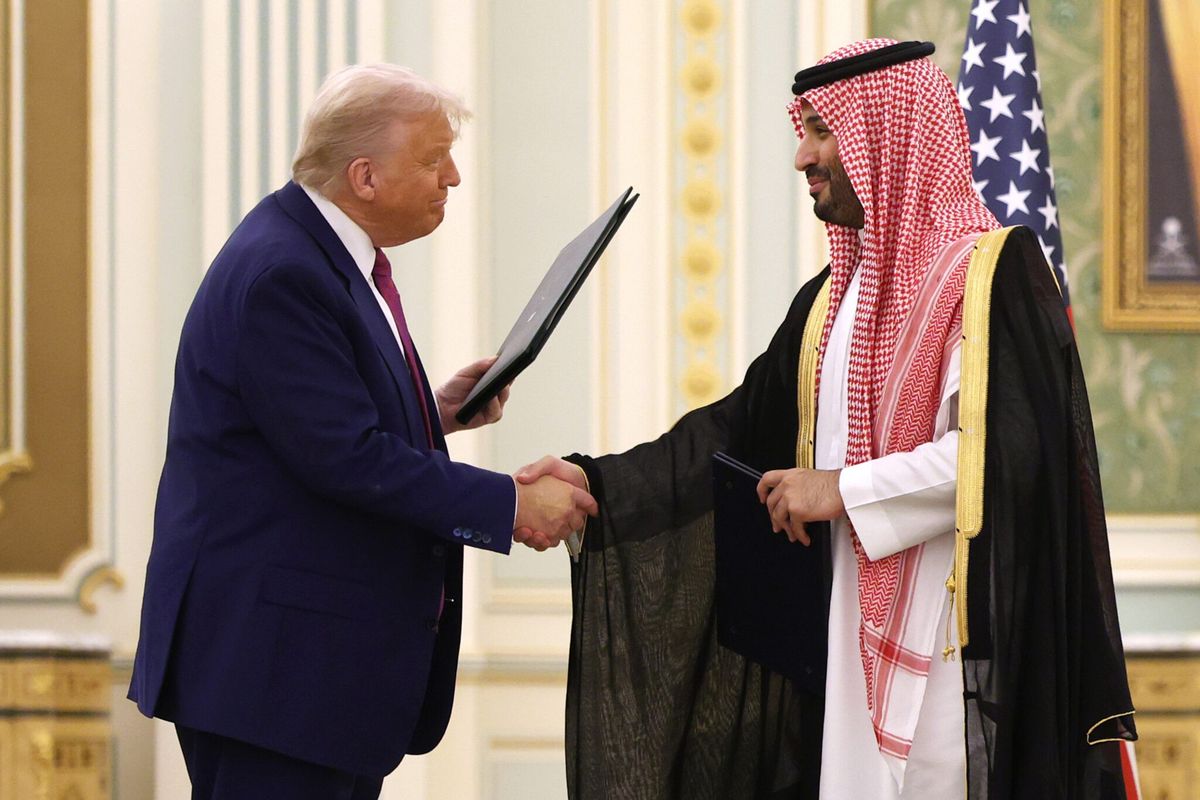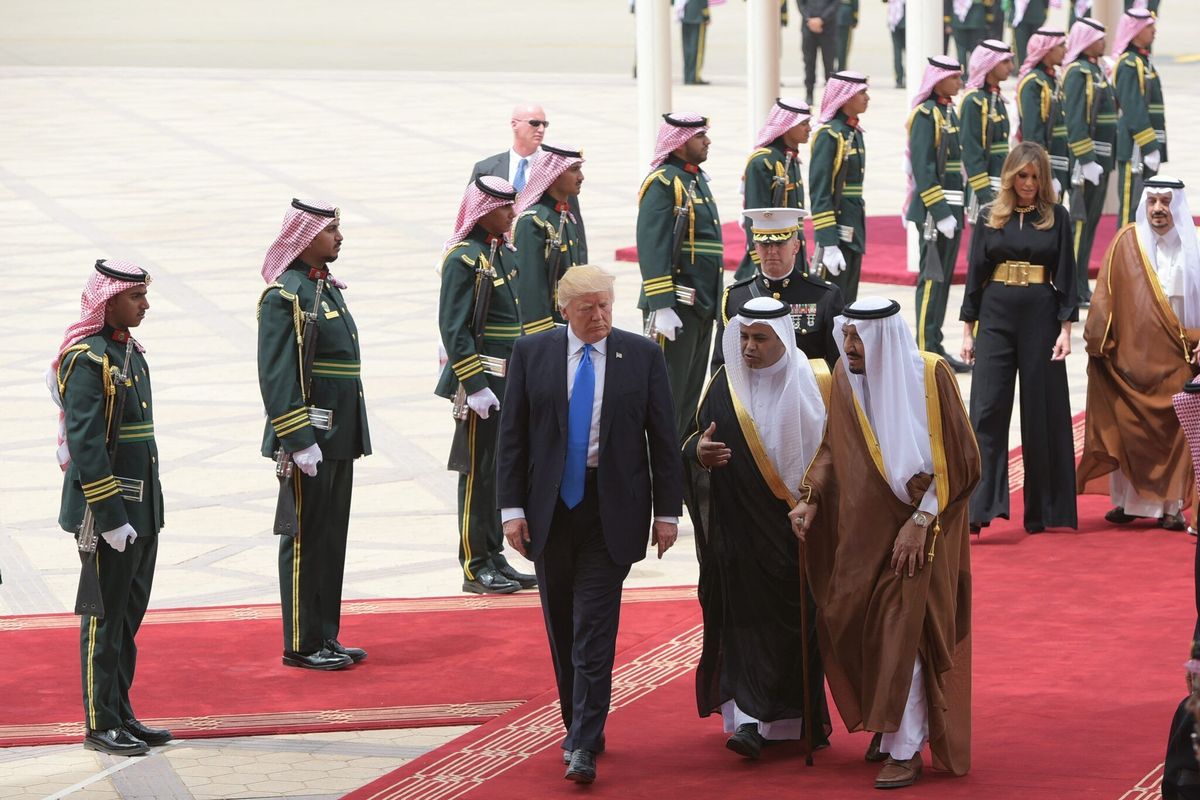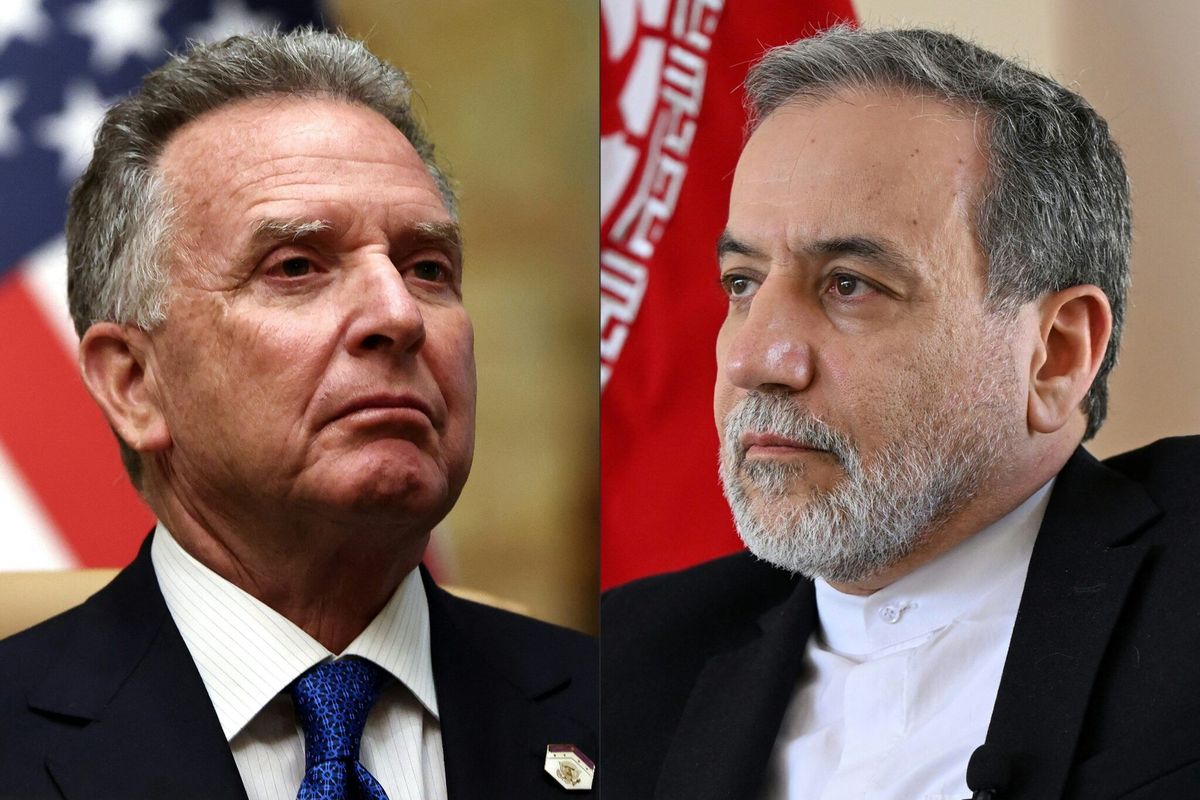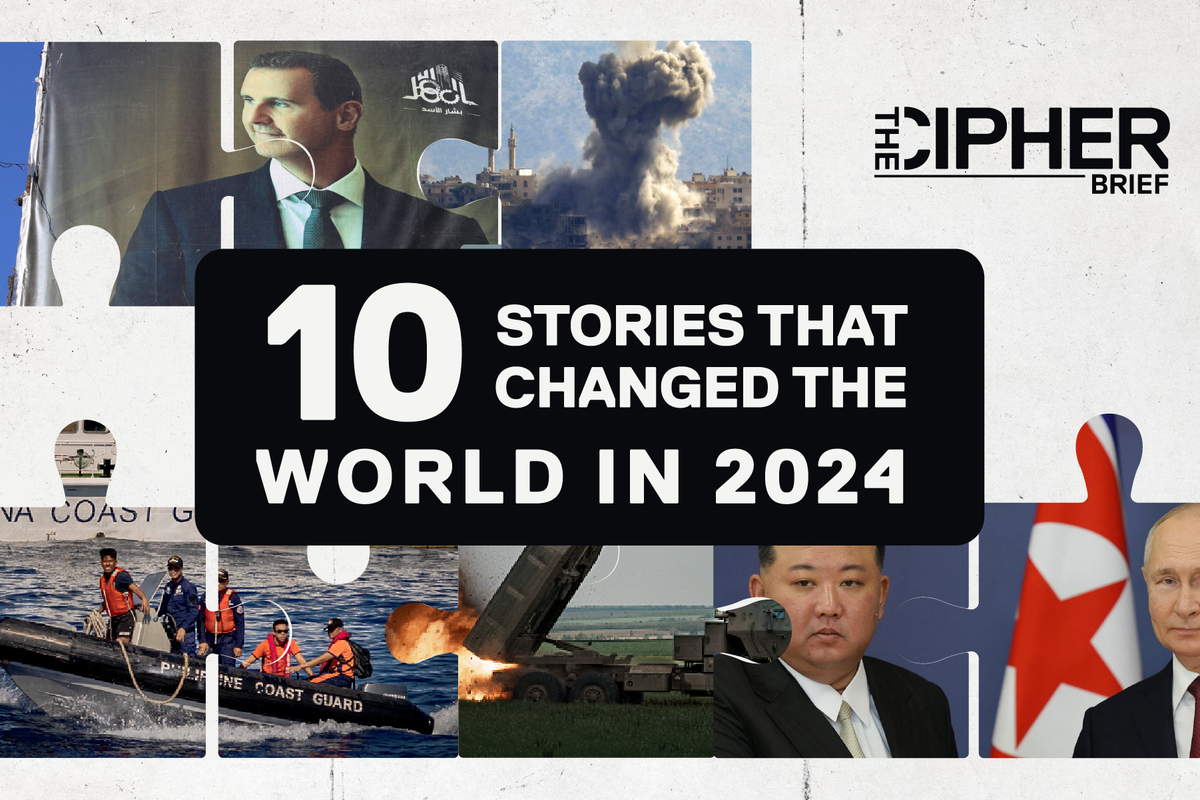DEEP DIVE - Hezbollah has lost an experienced, deeply committed leader – and a lot more.
Hezbollah’s longtime secretary-general, Hassan Nasrallah, and some of the organization’s most valuable military commanders were killed Friday when Israeli warplanes dropped 80 heavy bombs, including so-called “bunker busters,” on an underground Hezbollah command and control center in Beirut.
Beyond the strikes against the leadership of Hezbollah, Israeli attacks have hit more than 1,000 military targets in the past week, according to a count by Reuters, destroying an estimated 20 percent to 25 Hezbollah’s missile capacity. An Israeli security official told the news outlet that Hezbollah’s losses included "a very respectable portion" of its missile stocks. And before the air strikes, on September 17 and 18, several thousand booby-trapped pagers and walkie talkies issued to Hezbollah members exploded, killing at least 32 people, injuring at least 3,000 others, and severely compromising Hezbollah’s ability to communicate.
“Hezbollah as a fighting force has been seriously degraded and diminished,” Ambassador Dennis Ross, mideast envoy in both the George H.W. Bush and Bill Clinton administrations, told The Cipher Brief Sunday. “Its entire leadership cohort has been eliminated. Its command and control [capability] is largely in tatters. It cannot trust its communications—and can’t be sure the messages transmitted might not be coming from the Israelis.”
The past two weeks have staggered a group long considered the most powerful of the region’s anti-Israel militias. As Ross put it, “Hezbollah operatives and fighters are focused now on their own survival. It would be wrong to think that its military weapons have all been destroyed or rendered unusable. But the ability to deploy their forces and weapons now has been profoundly limited. It will take a long time to recoup.”
It’s the kind of impact Israel has tried for nearly a year to inflict on Hamas in Gaza. And while Hamas’ military capability has been severely degraded as well, the Hamas leader Yahya Sinwar survives, as far as Israel and the U.S. can determine. And now the powerful Nasrallah is dead.
That doesn’t mean Hezbollah is damaged beyond repair. Ross, now at the Washington Institute for Near East Policy, says for all the power of the recent Israeli attacks, they are unlikely to be a permanent solution.
For one thing, the 42-year-old Lebanese Shia militant group can still call on a fighting force and arsenal larger than the military power of some small nations. According to a September 20 report of the Congressional Research Service, published before the last round of Israeli strikes, the U.S. government estimated that Hezbollah had more than 150,000 rockets, missiles, and drones at its disposal. Hezbollah was believed to have some 40,000 to 50,000 men under arms.
But beyond the bomb damage, there is the likely damage to the morale of Hezbollah, which has been a much-feared group for the better part of the last four decades.
“One thing that's really interesting is that Hezbollah was apparently oblivious to how good Israel's intelligence was,” Dr. Bradley Martin, a senior policy researcher at RAND and retired surface warfare U.S. Navy captain, told The Cipher Brief. “Apparently Israel, based on the reports, knew where Nasrallah was for months. They just decided to do it now before he had a chance to move. So that in and of itself, the fact that Israel's intelligence was much better than what Hezbollah thought it was, is going to be demoralizing.”
“Hassan Nasrallah had a combination of charisma and organizational and political skill that will be very hard to re-establish,” Ross said. “He defined the identity of Hezbollah and was a symbol to Shia (Muslims) inside and outside Lebanon. That is not replaceable. If replacing him were the only challenge for Hezbollah, that would be hard enough. But Israel has killed the entire leadership and most important, military commanders. That will take time to overcome, and Hezbollah will now be vulnerable in Lebanon.”
Israel’s mission in the war on Hezbollah
Prime Minister Benjamin Netanyahu and his commanders escalated the conflict with Hezbollah because since the October 7 Hamas massacre in Israel, Hezbollah’s regular lobbing of rockets across Israel’s northern border had driven an estimated 70,000 Israelis from their homes. Netanyahu promised the Israeli people the military would push the Lebanese militants far enough from their side of the border so that the displaced people could return home.
Former Ambassador Gary Grappo told The Cipher Brief that “the Israelis want to create a buffer zone between their northern border and the Hezbollah presence in southern Lebanon…where there are no Hezbollah forces present and Hezbollah does not have the ability to fire rockets or missiles from some of the hilltops which have line of sight into Israel.”
Grappo added that in the current atmosphere, it’s hard to imagine anyone feeling safe in those border areas, and other experts say the Israeli promise won’t be fulfilled by eliminating Nasrallah and other senior leaders. In their view, the Israeli Defense Forces must also clear out Hezbollah rocket launchers and positions just inside Lebanon’s border with Israel.
In the wake of the Nasrallah killing, Martin said he doubts that Israel will move forward with plans to put boots on the ground inside Lebanon, as Israeli military commanders had signaled last week. It may be able to create a buffer zone with air strikes and call it done, for now.
“I don't think Israel's interested in doing a ground operation now and probably doesn't have to, because last time they tried that, it did not work out well,” Martin said. “They're really very much relying on high-tech tracking and air power. And as long as they can do that, there's no particular reason for them to occupy southern Lebanon.”
How will Iran respond?
Iran’s next move is a more complicated question.
Iran’s supreme leader, Ayatollah Ali Khamenei, declared Saturday that Israel’s killing of Nasrallah "will not go unavenged.” Khamenei announced five days of mourning in Iran for the "martyrdom of the great Nasrallah” and, according to Reuters, moved to a “secure location” inside Iran to avoid the fate that doomed the Hezbollah leader.
But Khamenei and Iran have made similar threats recently without making good on them. The regime still hasn’t followed through on the Supreme Leader’s vow to avenge the assassination of Hamas leader Ismail Haniyeh in Tehran in July, an operation presumed to have been engineered by covert agents working for Israel. His caution seems to be a calibration based on a reluctance to spark a regional war, and the knowledge that any major Iranian retaliation would in turn provoke an overwhelming counterattack from Israel and perhaps bring an American response as well. As The Cipher Brief reported Saturday, in his speech to the United Nations General Assembly last week, Iran’s new President Masoud Pezeshkian said that the fighting in Lebanon risked an “all-out conflict,” and “a point where we do not wish to go.”
“I don't think Iran can just sit by and watch all this happen,” Martin said. “However, it is unlikely they will do anything so dramatic that it's likely to bring the United States into the mix. If they start a war with us, it's going to be bad for everybody, but ultimately the regime currently in Iran wouldn't survive that particular war. I don't think that's in anybody's interest, including the United States. I think their calculus will be something like, ‘We've lost these particular influence nodes. We need to regroup, figure out how we're going to try to exercise influence.’”
The view from Washington
Over the longer term, the U.S. must also worry about the geopolitical picture. Iran has powerful friends – in Russia especially, and in China well.
“Iran is in a close relationship with Russia,” Martin said. “Iran is supplying Russia arms. There’s no known alliance [with China] but if Iran is pretty firmly in China's orbit, that's a different world than we have been having to deal with. That means we now have a fairly powerful tripartite alliance that does more than just generally coordinate. So I think we have to make the transition from just looking at the regional piece to looking at the global piece.”
What is the U.S. to do? Ross, the former U.S. mideast envoy, urged immediate diplomatic steps aimed at exploiting Hezbollah’s temporary disarray.
“The U.S. should be active with the French and others now supporting the opposition in Lebanon to act now to retake their country,” Ross advises. “Use the Lebanese military—one we have continued to help finance—to restore Lebanese sovereignty and take it out of the grip of Hezbollah.”
Wooing Arab populations away from radical movements has never been easy, however, and now, with the high civilian death toll and destruction inflicted by Israel in its Gaza war, the task is far more daunting.
Finally, there is one point made by many: People like Nasrallah can be killed. Ideas don’t die.
“Among the reasons Hezbollah and Hamas have been able to continue for as long as they have is that there's still a very deep well of anger against Israel for perceived inequality, perceived poor treatment, maltreatment of the Palestinian cause,“ Martin said.
“I don't think that's gone away. And in some ways Israel has made it worse, so it's very unlikely Israel will have succeeded in eliminating Arab nationalism, or Palestinian nationalism. It has, however, bought itself some significant time in finding a way to deal with that.”
Read more expert-driven national security insights, perspective and analysis in The Cipher Brief.














